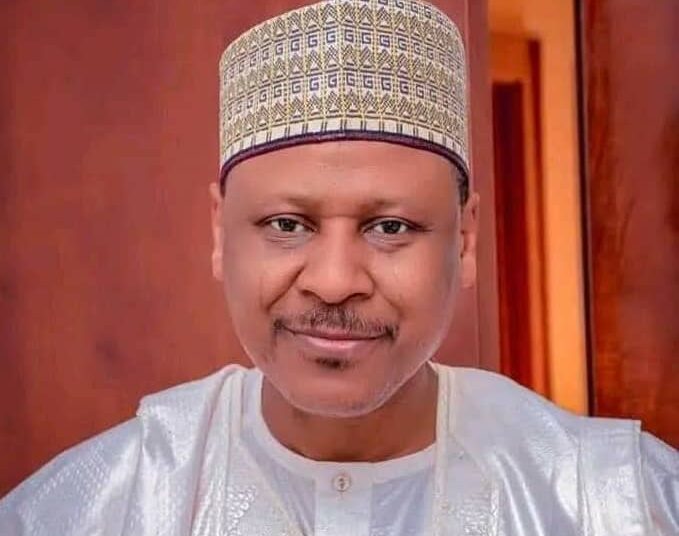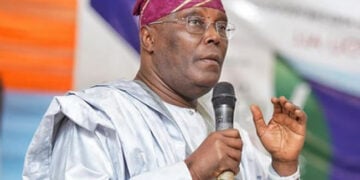Minister of Information and National Orientation, Muhammad Idris has declared that President Bola Tinubu’s administration remained steadfast in its commitment to fairness, equity, and national inclusivity in the distribution of federal projects, appointments, and opportunities across Nigeria’s six geopolitical zones.
In a statement issued to journalists on Sunday in Abuja, Idris while reacting to what he described as “insinuations, half-truths, and fake information,” maintained that Tinubu has ensured balanced development and equitable access to resources since assuming office in 2023.
“Contrary to the perception being pushed in some quarters, this administration has demonstrated an uncommon commitment to balanced development and inclusivity,” he stated.
He emphasised that no region has been sidelined or treated as secondary, noting that, in addition to ongoing projects across Ministries, Departments, and Agencies (MDAs), all six regions now benefit from the establishment of Regional Development Commissions.
According to the minister, major infrastructure projects have been fairly distributed, with both the North and South receiving significant investments. He cited examples such as the Lagos–Calabar Coastal Highway and the Badagry–Sokoto Superhighway, which reflect the administration’s effort to achieve geographic balance.
Idris further revealed that the distribution of federal capital projects stands at 52% for the North and 48% for the South.
He disclosed that funding has been secured for light rail projects in Kano (₦150 billion) and Kaduna (₦100 billion), alongside metro line developments in Lagos and Ogun States. Collectively, he said these initiatives were expected to create over 250,000 jobs nationwide.
In the health sector, the minister stated that over 1,000 primary healthcare centres have been rehabilitated across the country, reaffirming the administration’s focus on human capital development and social infrastructure.
Breakdown of Federal Capital Project Allocations by Region: North-West: ₦5.97 trillion, South-South: ₦2.41 trillion, North-Central: ₦1.13 trillion, South-West (excluding Lagos): ₦604 billion, South-East: ₦407 billion, North-East: ₦400 billion.
The North-West region, Idris noted, has received the highest allocation, accounting for over 40% of federal project approvals.
Key legacy projects by region include Sokoto–Gusau–Funtua–Zaria Road (275 km dualised, ₦824bn), Abuja–Kaduna–Kano Road (350 km dualised, ₦764bn), BUA Tax Credit Roads in Jigawa, Katsina, Kano (256 km dualised), Kano–Maiduguri Road, Bama–Dikwa Roads, Damaturu–Maiduguri Road for the North.
In the South, he highlighted the Lagos–Ibadan Expressway, Lagos–Sagamu, Oyo–Ogbomoso–Ilorin Road (₦146bn), rehabilitation of Carter, Third Mainland, and Eko Bridges (₦120bn).
The minister also noted that the Enugu–Onitsha Road, 2nd Niger Bridge Access Road, Lokpanta–Enugu Road, Eleme–Onne Road, Eket Bypass, Nembe–Brass Road, Bodo–Bonny Road (35 km with 12 bridges) in the South-East and South-South regions.
Idris also highlighted achievements in the energy and rail sectors to include the revival of the 255MW Kaduna Power Plant, progress on the Ajaokuta–Kaduna–Kano (AKK) Gas Pipeline, and the expansion of oil and gas exploration in the Kolmani region of Bauchi and Gombe States.
He added that the Kano–Maradi rail line, inherited at only 5% completion, has now reached 67%, following accelerated funding under the Tinubu-led administration.
“President Tinubu is building national infrastructure, not local trophies,” Idris stated. “While Lagos is rightly being upgraded as Nigeria’s commercial hub, the Northwest holds the lion’s share of infrastructure approvals, proving that every region is receiving fair consideration.”
On political appointments, Idris emphasised that Tinubu has consistently appointed capable Nigerians from all regions, guided by merit, national unity, and competence rather than sectional interests.
He cited the creation of five new Regional Development Commissions and the Federal Ministry of Livestock Development as evidence of the administration’s focus on inclusive, region-specific solutions.
“President Tinubu has not only kept faith with Nigerians but has proven himself to be a fair, pragmatic, and consequential reformer. His leadership is inclusive, his vision is unifying, and his commitment to equity and justice is unwavering,” Idris said.
The minister assured Nigerians that no region will be left behind in the nation’s development journey under Tinubu’s leadership.











